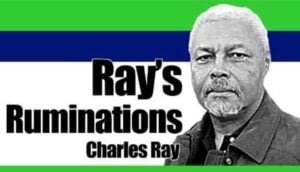
Growing up in a town distant by 120 kms. from the city, I had always looked forward to occasions when panel trucks of companies would come to town to sell their products, which included promotional events, like offering of kitchen utensils, like glasses, cups and plates in exchange for a number of proofs of purchases, among them, wrappers and containers of the products.
And free movies, too, which attracted practically most the whole town to the night show at the plaza. The trading of wrappers with corporate items took place between the running of the two film reels.
In the afternoon of the movie day, which took place at least three times a year, the salesman after making a round of the stores in the public market for product delivery and orders, would drive around town and announce via the truck’s built-in public address system, inviting townsfolk to the movie and reminding them to bring wrappers and other packaging materials in exchange for the free items.
The roving announcement was, by itself, an attraction for many kids, who followed around the slow-moving vehicle blaring with music and advertising.
The Spanish word, which means “route, travel or journey”, has been adopted into the local semantics with the Visayan dictionary describing “rekurida” as the advertisement of a movie or some public event through a roving vehicle, it’s for your safety, mother often told me. “Just listen, but don’t follow the recorrida.”
Owing it to its Spanish language roots, the recorrida apparently had been in use during the country’s colonization days, or, perhaps, even earlier.
Obviously, the marketing and promoting approach has been proven cost efficient and effective that local politicians have long been using it – the latest, in the 2016 election.
When the pandemic hit in March, a thought struck me: maybe, the “rekurida” would be aggrievedly used by health and local government officials as a persuasive tool to deliver an urgent public health message, thus I asked the barangay team members that was then surveying for quarantine pass purposes, why they have not started informing the community about coronavirus through traditional media, like pamphlets and the rekurida.
“Ara naman sa Facebook, radyo kag telebisyon,” one member replied. But I reasoned that social and mass media messages don’t reach everyone, including vendors and trisikad drivers, who do not have media exposure most of the day.
The “rekurida” method reverberated in my mind anew when I read last week from DEUTSCHLAND, an e-magazine I regularly receive from Germany, of a set of interviews with people around the world on their afterthoughts on the pandemic.
One respondent was a man from Vietnam, where the COVID-19 incidence has been effectively contained (under 1,100 cases as of this writing, lower than the infection numbers in Bacolod City and in Negros Occidental). The Hanoi man shared that foreign journalists keep asking why Vietnam has been doing well to contain the virus.
While he admitted that there are technical answers to the question, he offered this explanation: “Maybe it’s simply because the Vietnamese have been always good at war?” He further recounted that as soon as the virus ‘infiltrated’ into the country, old propaganda country, posters were dusted up and recycled. New propaganda songs were commissioned.
“Each moving and afternoon, public loudspeakers on the street blast government messages. It seems to work…” I he added. I presume that the mobile information delivery method gas been used in our neighboring country. The rekurida system has worked well in Vietnam, assuming that the claim is valid and reliable.
Have local leaders forgotten to persistently use the same means they have adopted in their political campaign propaganda in the public information drive to make the people more aware of health protocols in containing the virus spread?
The same tested-and-proven traditional media method, any development communicator would say, has been positively used in delivering messages in many regions, like India, Africa and the Philippines included to elicit public cooperation in vital issues, like public health.
Vietnam’s way of blasting messages on the streets serves as a lesson that reminds us that the rekurida – with its accepted value of message reliability and immediacy – remains a powerful tool in this day of high-speed communication technology
It is a tool that may have been relegated to minimal use but still effective and useful, as in the case of Vietnam, not only in improving and transforming lives, but more so – in these pandemic season – of protecting and saving dear lives.*




